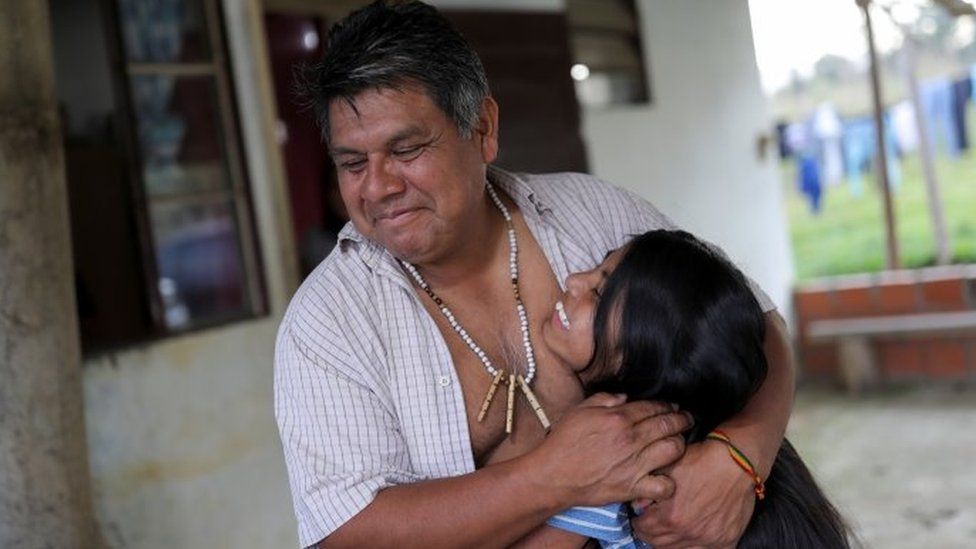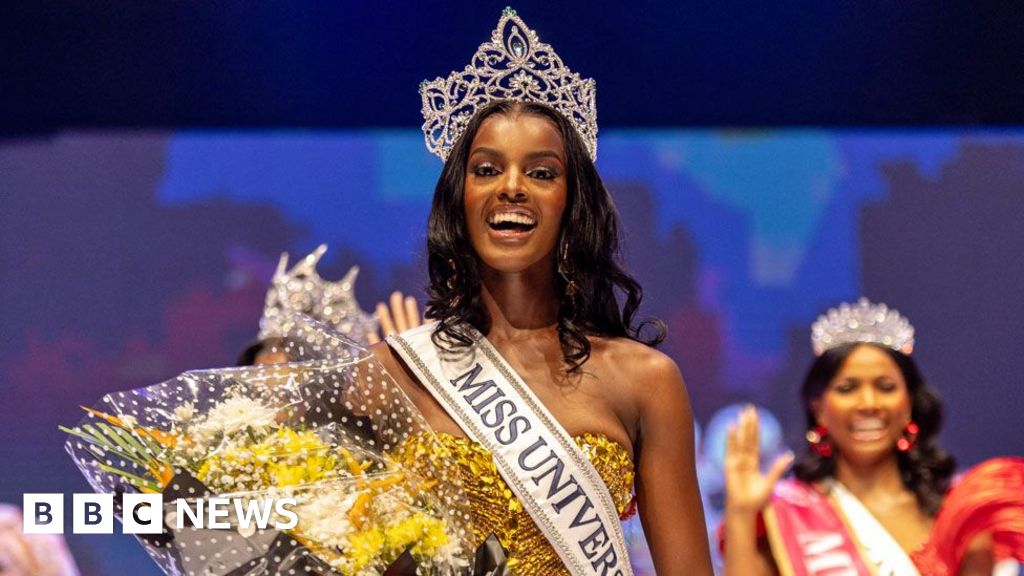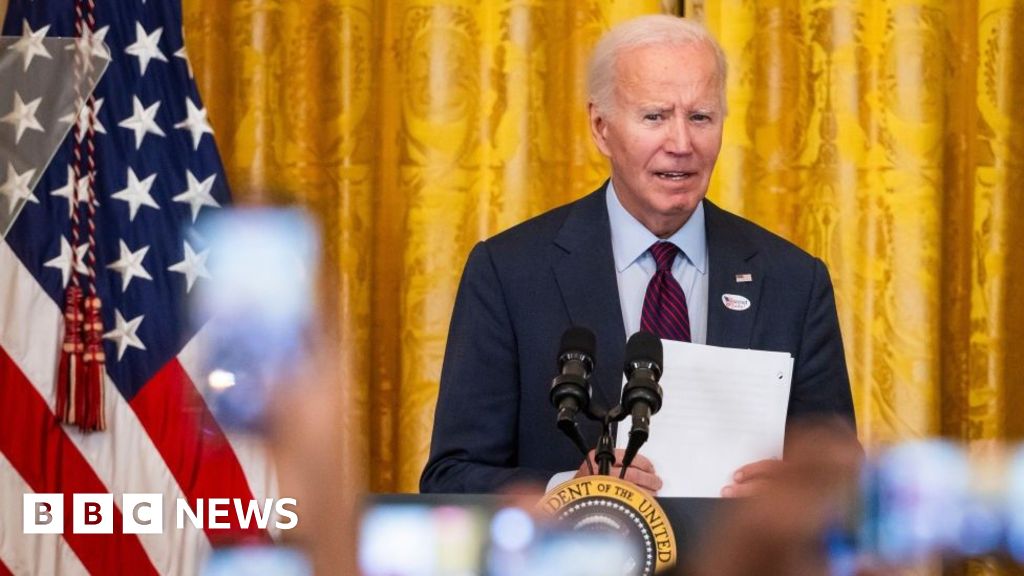ARTICLE AD BOX
 Image source, Reuters
Image source, Reuters
The Xokleng have been waging a long legal battle to try and claim lands they say are theirs
By Vanessa Buschschlüter
BBC News
Brazil's Supreme Court has rejected efforts to restrict native peoples' rights to reservations on their ancestral lands.
Six of the 11 justices on Thursday ruled in favour of restoring territory to the Xokleng people, from which they were evicted.
The ruling sets a precedent for hundreds of indigenous land claims and is expected to have widespread consequences for indigenous land rights.
The decision was met with celebrations and tears of joy by members of indigenous groups from across the country.
Who are the Xokleng?
The Xokleng are an indigenous group numbering some 2,300 people living in the highlands of Santa Catarina state in southern Brazil.
Image source, Reuters
Image caption,The Xokleng were driven from their land by settlers in the late 19th and early 20th Centuries
They were the victims of one of the most brutal land clearances in the late 19th and early 20th Centuries.
Anthropologists have documented how mercenaries hired to drive the Xokleng from their ancestral lands would collect the ears of those they killed to claim their reward.
The Xokleng currently live on the Ibirama La-Klãnõ lands alongside two other indigenous groups.
The groups were officially granted the rights to Ibirama La-Klãnõ - a 15,000-hectare (37,000-acre) parcel of land - in 1996.
But they argue their ancestral lands were much bigger before they were driven from them by force.
Their struggle for this land has put them at loggerheads with tobacco growers and farmers, who argue that they have worked the land for decades and should not be evicted from it.
What is the case about?
This particular case goes back to 2009 when the Xokleng were evicted by Santa Catarina's Environmental Institute from lands which form part of a nature reserve.
Image source, EPA
Image caption,Indigenous groups have urged the Supreme Court to rule in favour of the Xokleng
The Xokleng appealed against the decision with the help of Brazil's indigenous affairs agency, Funai.
At the appeal in 2013, the Santa Catarina state authorities used a legal argument known as "marco temporal" (Portuguese for timeframe) to defend the eviction of the Xokleng.
Proponents of the "marco temporal" argue that in order for indigenous groups to lay legal claim to any land, they have to prove that they lived on that very land when the Brazilian constitution was signed in 1988.
The court ruled against the Xokleng, arguing that because they were not living there in 1988, they had no rights to the lands.
The Xokleng's supporters said the decision ignored the fact that they had been forcibly removed decades earlier to make way for mostly German settlers.
The Xokleng took their appeal all the way to the Supreme Court.
Why does the ruling matter?
In 2019, Brazil's Supreme Court said that the Xokleng case would set a precedent. Its decision will have repercussions for hundreds of similar disputes.
With the Supreme Court in effect ruling against the "marco temporal", all the land disputes in which this argument was used could be challenged in court.
It will be seen as a boost to indigenous rights, which came under attack during the presidency of Jair Bolsonaro.
Mr Bolsonaro argued that indigenous rights had gone "too far" in Brazil and that a small number of indigenous people controlled vast swathes of land that he thought should be used for timber, mining or agriculture.
While Mr Bolsonaro was defeated by his left-wing rival, Luiz Inácio Lula da Silva, in last year's presidential election, Mr Bolsonaro's party continues to have influence in politics.
The party dominates both houses of Brazil's Congress and has been able to block legislation proposed by President Lula.
Earlier this year, Congress curtailed the powers of the ministry of the environment and of President Lula's newly created Indigenous affairs ministry.
You may be interested in:
On patrol with an indigenous leader trying to protect the Amazon from land grabbers

 1 year ago
41
1 year ago
41








 English (US)
English (US)